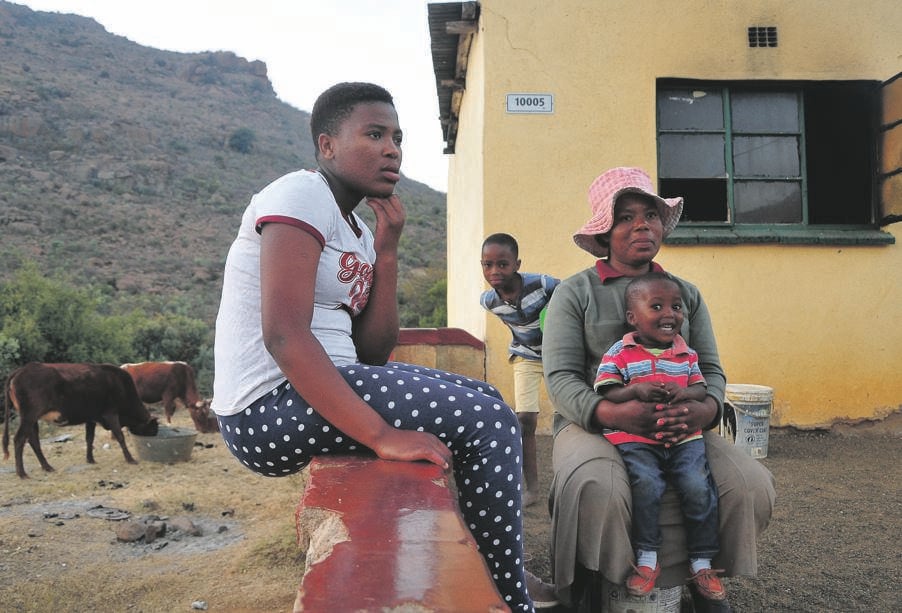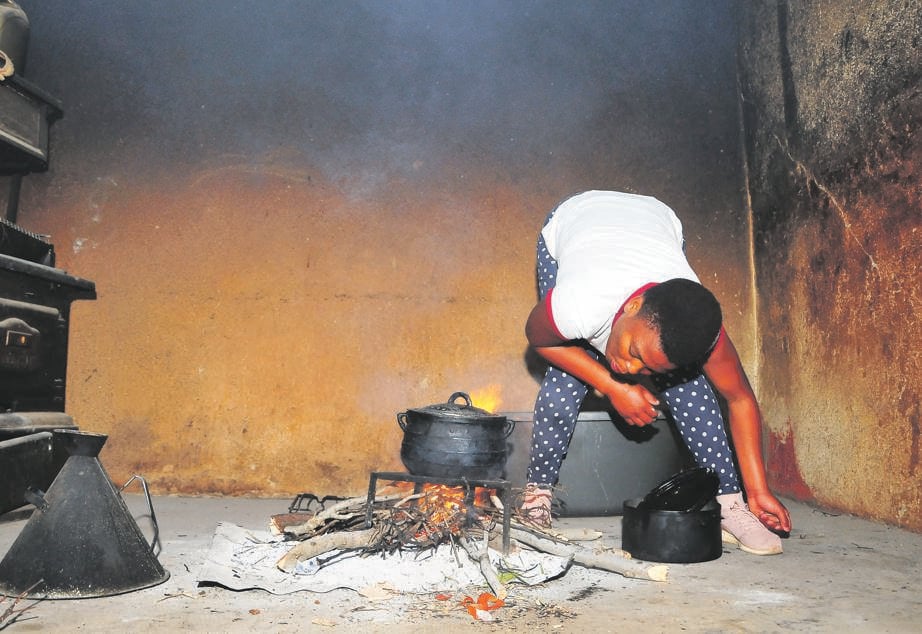
Dusk is falling when Patience Mamaru (16) arrives home from school after walking for almost two hours up a steep gravel road that winds its way through the imposing mountains of Leolo in Sekhukhune, Limpopo.
The road twists and turns, reaching altitudes of more than 1 000m through remote, deserted bushy areas where evil thugs can easily lie in wait and pounce on her and other pupils.
So far, no such ugly incidents have been reported along their route.
But Patience and schoolmates from villages hidden up in the mountains east of Schoonoord in the Sekhukhune District Municipality don’t take any chances.
They walk in groups every morning and afternoon to and from school for their own safety.
“We don’t walk alone. Anything can happen here when you walk alone. We could be raped or get attacked by someone,” says Patience.
Last week two schoolgirls on their way from school in Vuwani, about 350km north of Schoonoord, were raped by two assailants.
The incident has once again shone the spotlight on the issue of scholar transport, especially in rural areas.
In the wake of the incident, Limpopo DA leader Jacques Smalle has called for provincial education MEC Polly Boshielo to offer scholar transport to pupils living in crime hot spots, regardless of how far they live from school.
“Children who walk long distances to school daily face real and present dangers that can strip them of their identity, their dignity and possibly their lives.
“But they are avoidable dangers. Safe and reliable scholar transport would allow learners to be protected from crime, and give them much-needed peace of mind,” says Smalle.
Boshielo, in her budget vote speech last week, said that the scholar transport programme provides transport to deserving pupils from grades R to 12 who walk a minimum of a 5km single trip to the nearest public school. She said the target groups were pupils from farms and rural areas.
Boshielo said the demand for scholar transport continued to increase due to relocations, new settlements and lack of schools in the areas where communities are located. She said the department was providing scholar transport to 37 357 pupils from 375 schools.
“It is important to acknowledge the role played by the scholar transport programme. Among other things, it has improved learner attendance, minimised absenteeism and late coming, and thus supported the delivery of curriculum in our schools,” Boshielo said.
In 2015, non-governmental organisation Equal Education’s research into scholar transport in KwaZulu-Natal found that teachers and principals complained about teaching pupils who often arrived hungry and exhausted after their long walk to school.
As a result, the pupils struggled to concentrate or stay awake in class.
“They attributed high incidences of late-coming, absenteeism and learners dropping out of school to the lack of scholar transport. Some described how school attendance was as low as 5% to 10% on days of heavy rains or lightning storms, particularly during the summer rainfall season,” Equal Education found.
Patience and her schoolmates from GaSekele, a village in the Makhuduthamaga Local Municipality, might have to give up dreams of benefiting from the scholar transport programme.
Although their walk to school through a mountain pass is a long and punishing one, the distance is less than the 5km that would qualify them to benefit from the programme.
Some make the morning trip on empty stomachs, others in worn-out shoes, patched up or ill-fitting uniforms.
Everything about the pupils speaks of a hard life where even affording the basics such as a decent uniform are a luxury.
However, driven by a desire to get an education, they persevere, whether it’s bitterly cold, raining or swelteringly hot. They are from indigent families that cannot afford to pay monthly transport fares to private taxi operators, let alone adequately feed their children.
The free meals provided as part of the school’s nutrition scheme programme are the only decent meals for many of the pupils.
Patience is up by 5am every morning to prepare for school. She makes a wooden fire to heat water for her bath and then makes tea and bread for breakfast.
“Sometimes there’s nothing to eat in the morning,” says Patience, her voice rising through the sound of feet pounding the gravel road as she walks home with her schoolmates.
School starts at 7.30am and finishes at 4.30pm.
“We have no time to do anything else. When I get home I must look for firewood. Then I must fetch water from the river. Sometimes I must wash my uniform. By then I am too tired and have no time to study,” she says.
On a late Monday afternoon, the chatter among her group is animated and fun despite the obvious signs of fatigue after a long day in class.
Benny Sithole (21), a Grade 10 pupil, is the butt of their jokes.
“He lives at the end of the world,” says his classmate Calvin Mokgwadi, who, like Patience, lives in GaSekele.
Sithole, a lean fellow with a wide boyish smile, clutches a small blue suitcase and walks faster than the rest of the crew.
He lives in Dlamini village, which is furthest from GaSekele and surrounding villages. He is the last one to get home after school and the first to leave in the morning. He leaves home just before 6am so that he can get to school just before 7.30am.
His parents are unemployed. There is a school in his village, but it doesn’t offer the technical subjects taught at Kgalatlou Technical High School. But when it rains, he sometimes has to stay at home or wait until the weather clears up before he can start the long walk.
In winter, he walks alone in the dark mornings until he catches up with his peers from GaSekele.
“I get to school tired because of this long walk,” he says.
When he gets home in the evening, he rests for a while before taking a bath. Then he studies before going to bed.
Flora Mamaru is worried about the toll the long walk is having on her daughter Patience.
“She comes back home tired. She doesn’t even spend too much time on her books,” Mamaru says.
When she gets home, Patience runs to use the pit toilet in the yard. Afterwards, she walks into the house and changes into pants and a shirt. Fortunately, on this day, she doesn’t have to wash her shirt – she has a clean one ready for the next day.
The water in the blue drum behind the kitchen door is enough for her bath tomorrow. She helps her mum with the cooking in an outdoor kitchen. Many other long walks await…
– Mukurukuru Media
TALK TO US
Is this the freedom that struggle heroes envisioned for young people? Has government betrayed that freedom in its delivery of basic education?
SMS us on 35697 using the keyword SCHOOL and tell us what you think. Please include your name and province. SMSes cost R1.50. By participating, you agree to receive occasional marketing material




 Publications
Publications
 Partners
Partners










